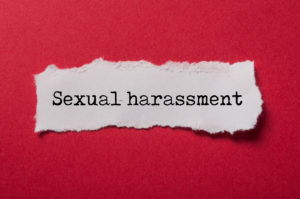This week’s post regarding workplace ethics training in regard to recognizing and dealing with sexual abuse and harassment won’t mention a specific case but will instead focus on the “why” of it all in terms of dollars and “common” cents. Sexual Harassment  Ethics training makes sense.
Ethics training makes sense.
The latest statistics on the effects of workplace sexual harassment should make any employer, regardless of industry, inquire about impactful ethics training as quickly as possible.
2019 Statistics
According to the Equal Employment Opportunity Commission(EEOC), sexual harassment and sexual abuse claims rose 13.6 percent from 2017 to 2018. Despite all of the “Me-Too” publicity in 2017, an insurance industry study made public in April 2019 found an 18 percent rise in employee claims between 2017 and 2018. The usual lectures, videos, and PowerPoints seemed to have little to stem the tide of serious complaints. Reality is sexual harassment ethics training opens the doors to better communication but results don’t happen over night.
Part of the problem may be the reports of sexual misconduct that involved “celebrity.” Society tends to think that when sexual harassment occurs in regard to political figures, entertainment or other celebrities, it is somehow different than when an employee is harassed. When harassment occurs in the workplace, the issues are very much the same as in the glitzier areas of society. In fact, workplace issues may even be higher. For example, those in the LGBTQ community report a 53 percent discrimination and sexual harassment rate in the modern workplace. What are we collectively doing in terms of sexual harassment ethics training when more than half of the gay employees are routinely harassed?
Lawyer Marcia Petrovic of the Chicago law firm of Broker, Burns & Wilcox states [my italics], “The number one thing to remember is that prevention starts with awareness. Companies need to have ongoing training for employees.”
Sexual Harassment Ethics Training and The Wallet
For companies wondering why their workers need to receive ethical training on issues such as sexual abuse and sexual harassment in the workplace, consider these numbers. In 2018 alone, the Equal Employment Opportunity Commission recovered about $70 million of workplace sexual harassment claims, a jump of more than 70 percent ($47.5 million) from 2017. However, that is the tip of the iceberg because many cases wind up in civil court. For example, in 2018 in California, a successful sexual harassment case got the employee $168 million. Obviously, not all awards are that large however, the stars are now lined up in favor of the victims and companies better be prepared to train – or suffer the consequences.
In 2018, 32 states passed well more than 100 bills related to sexual harassment (according to the National Conference of State Legislatures). Government workers are better covered as well as was witnessed by several legal actions in 2018 that were brought to light by the Inspector General’s office. If there is ever a time for sexual harassment ethics training it is now.
Who Pays?
Sexual harassment is no longer a faceless or innocent joke. It has traditionally (not exclusively) been the domain of men harassing weaker female employees. Even when “accused,” males have traditionally pushed it off as innocent fun. The “defense” was nothing more than an attempt at rationalization. Sexual abuse has often been lumped into consensual or implied activity as well. The victim has usually been blamed by the offended executive. Though clearly, it is not limited to the executive suite but to all professions in all areas of society.
The point is, victims are stepping forward, the laws more solidly back them up, and organizations are paying millions. The solution is to stop it before it starts. That’s where sexual harassment ethics training comes into play.
I would maintain that organizations who flatly refuse to ethically train their employees on these issues, are in fact, giving tacit support to sexual harassment and abuse. It can and does happen in all segments of society but it can be stopped cold.
Let’s talk about the programs I have that are quite effective as sexual harassment ethics training.


